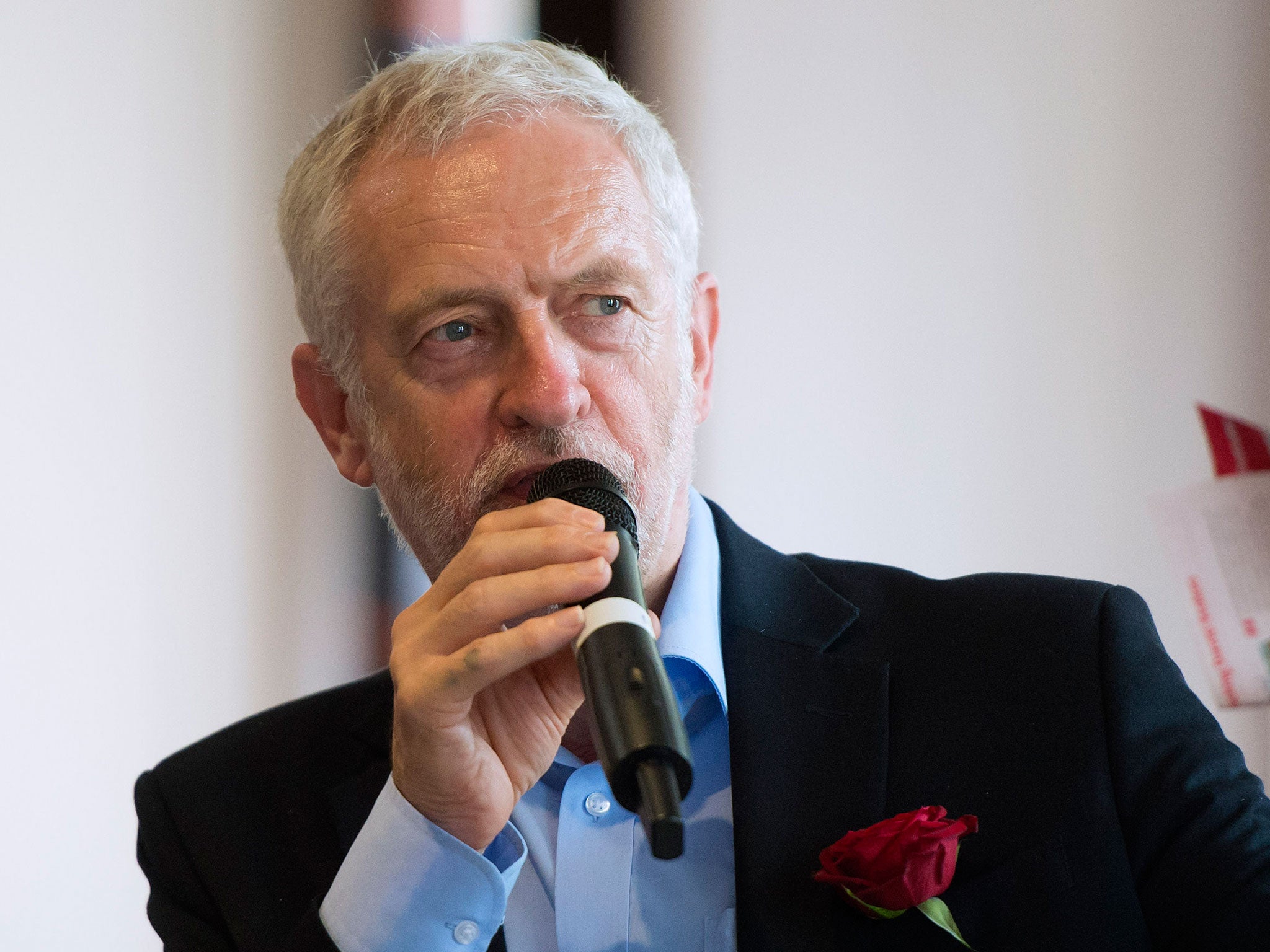Jeremy Corbyn calls on Government to apologise to all men convicted under historic homosexuality laws
‘Why should we seek a pardon for something that should never have been a crime in the first place?’

Your support helps us to tell the story
From reproductive rights to climate change to Big Tech, The Independent is on the ground when the story is developing. Whether it's investigating the financials of Elon Musk's pro-Trump PAC or producing our latest documentary, 'The A Word', which shines a light on the American women fighting for reproductive rights, we know how important it is to parse out the facts from the messaging.
At such a critical moment in US history, we need reporters on the ground. Your donation allows us to keep sending journalists to speak to both sides of the story.
The Independent is trusted by Americans across the entire political spectrum. And unlike many other quality news outlets, we choose not to lock Americans out of our reporting and analysis with paywalls. We believe quality journalism should be available to everyone, paid for by those who can afford it.
Your support makes all the difference.Jeremy Corbyn has called for a formal Government apology to every gay person who was convicted under historic laws on homosexuality, saying pardoning them has not gone far enough.
The Labour leader was speaking at an event to mark the 50th anniversary of homosexuality being legalised in the UK.
“This year, the Government posthumously pardoned thousands of men convicted of offences that once criminalised homosexuality,” he said.
“I welcome it in a sense, but why should we seek a pardon for something that should never have been a crime in the first place?
“They deserve an apology, an apology for everything that went on. A love of one person for another should never be considered a crime.”
Referring to Turing’s Law, under which the pardons were issued, he said: “I think the case of Alan Turing has been instructive for many people.
“He saved millions of lives by deciphering Nazi codes, a gay man who served this country and helped bring about the end of the World War, criminalised for his sexuality and then chemically castrated at the hands of the state. Immense physical and psychological harm which led to his suicide.
“A pardon for a man so unimaginably wronged seems insufficient to say the least. I think we should welcome an apology to every gay person who was ever persecuted.”
Mr Corbyn paid tribute to George Montague, who attended the event, for his long-running campaign on the issue after he was convicted of homosexual offences as a young man.
And he recalled the passage of the 1967 sexual offences act, which partially decriminalised homosexuality.
“This month is the 50th anniversary of the decriminalisation of homosexuality, and I remember that time very well. I was at school, in fact I was just leaving school in 1967, and the headteacher advised me, ‘Corbyn, you’ll never make anything of your life!’”
Referring to his own voting record, which shows he has been in favour of equal rights ever since he entered Parliament in 1983, he said: “I was proud to vote for the equalisation of gay consent, and the equalisation of adoption law, and I was proud to vote for the repeal of section 28 – but very angry I had to vote against the introduction of section 28 in the first place.
“I’m glad that I was here to vote for civil partnerships for same-sex couples, which was a brilliant step forward.”
Gay marriage was finally legalised by David Cameron’s administration in 2014, and Speaker of the House John Bercow used the event to call for the law to be extended to allow gay couples to marry in church.
“We don’t want to behave like it’s all over, everything’s been done and nothing remains because that isn’t true,” Mr Bercow said.
“I still feel we’ll only have proper equal marriage when you can bloody well get married in a church if you want to do so, without having to fight the church for the equality that should be your right.”
Join our commenting forum
Join thought-provoking conversations, follow other Independent readers and see their replies
0Comments